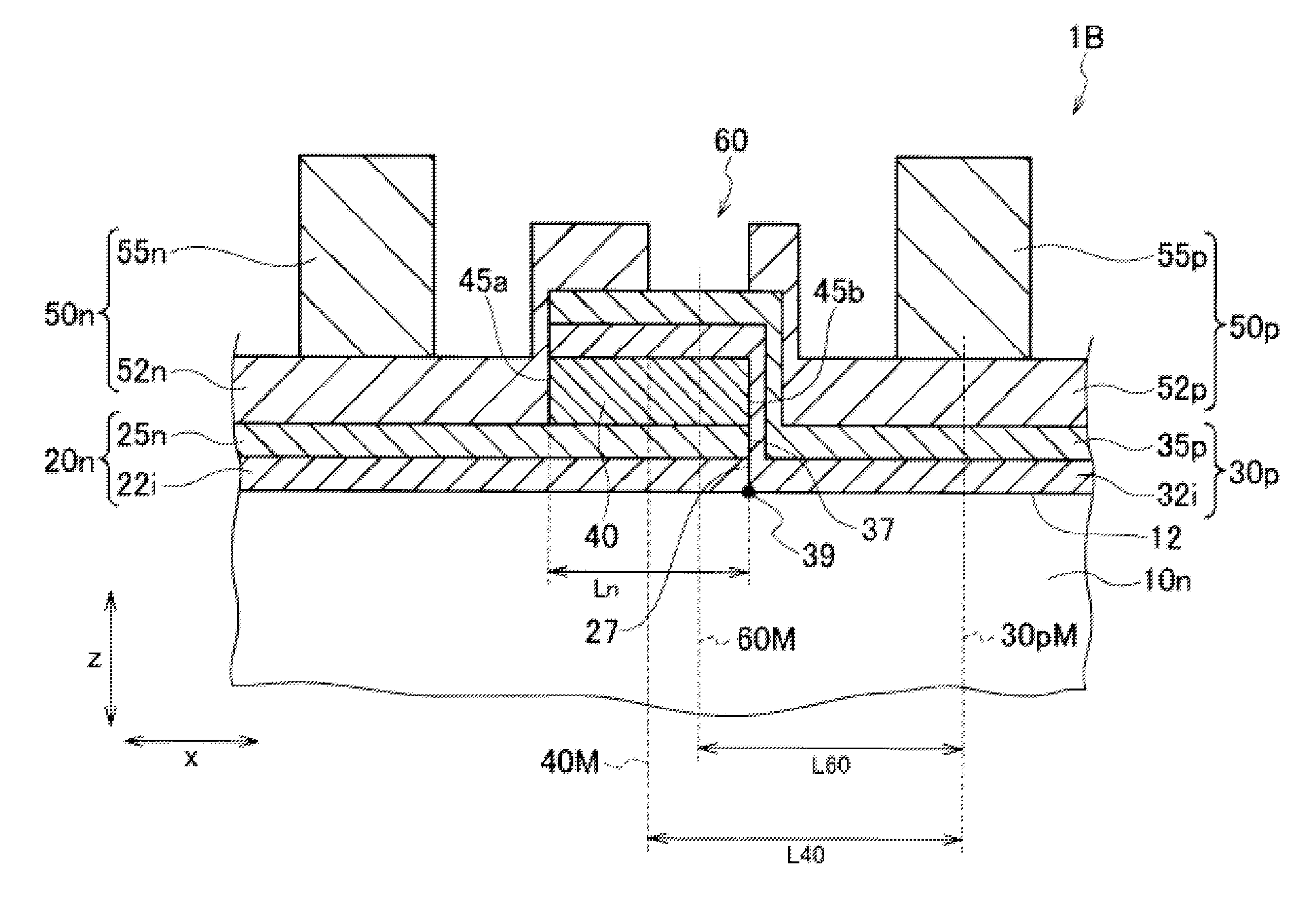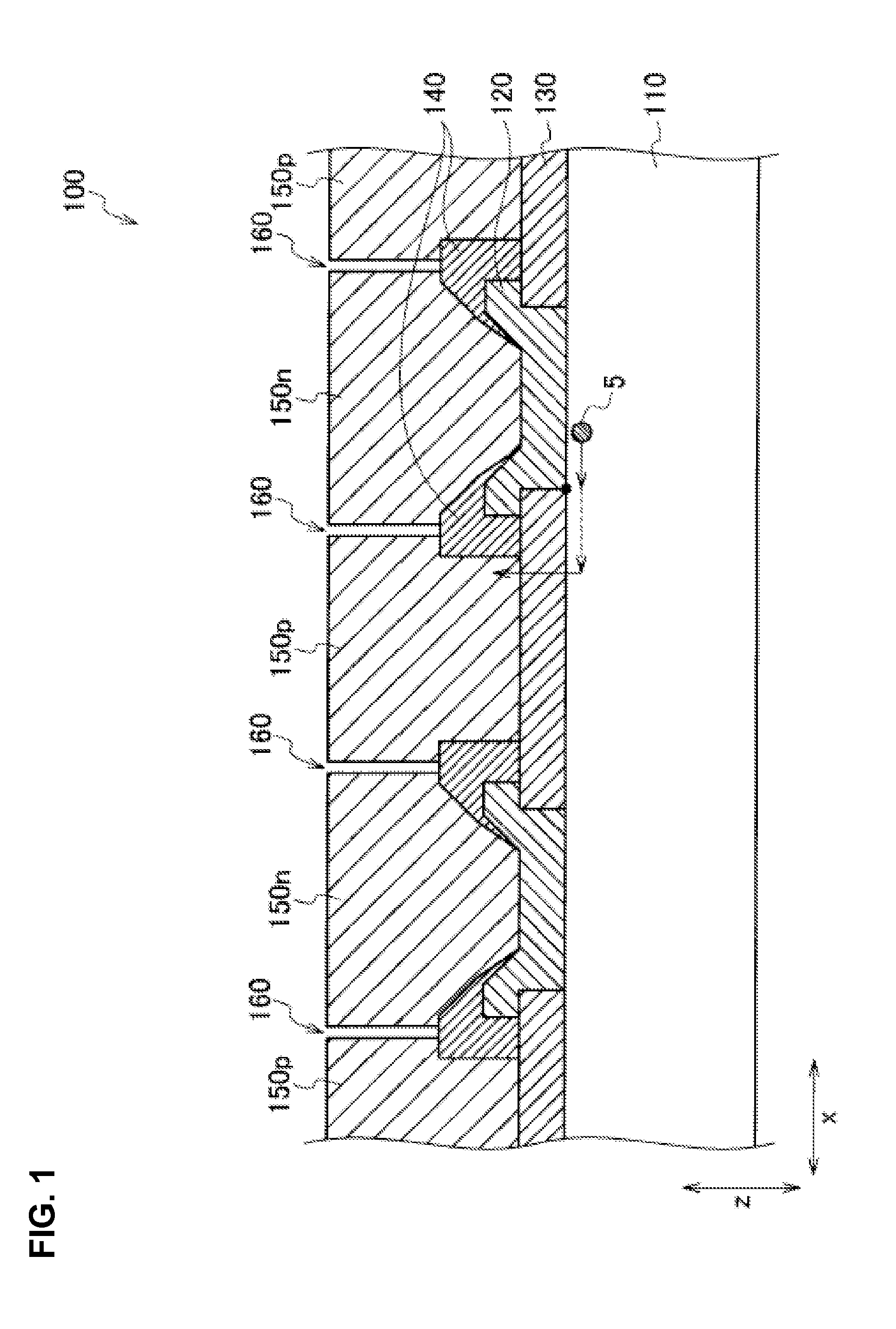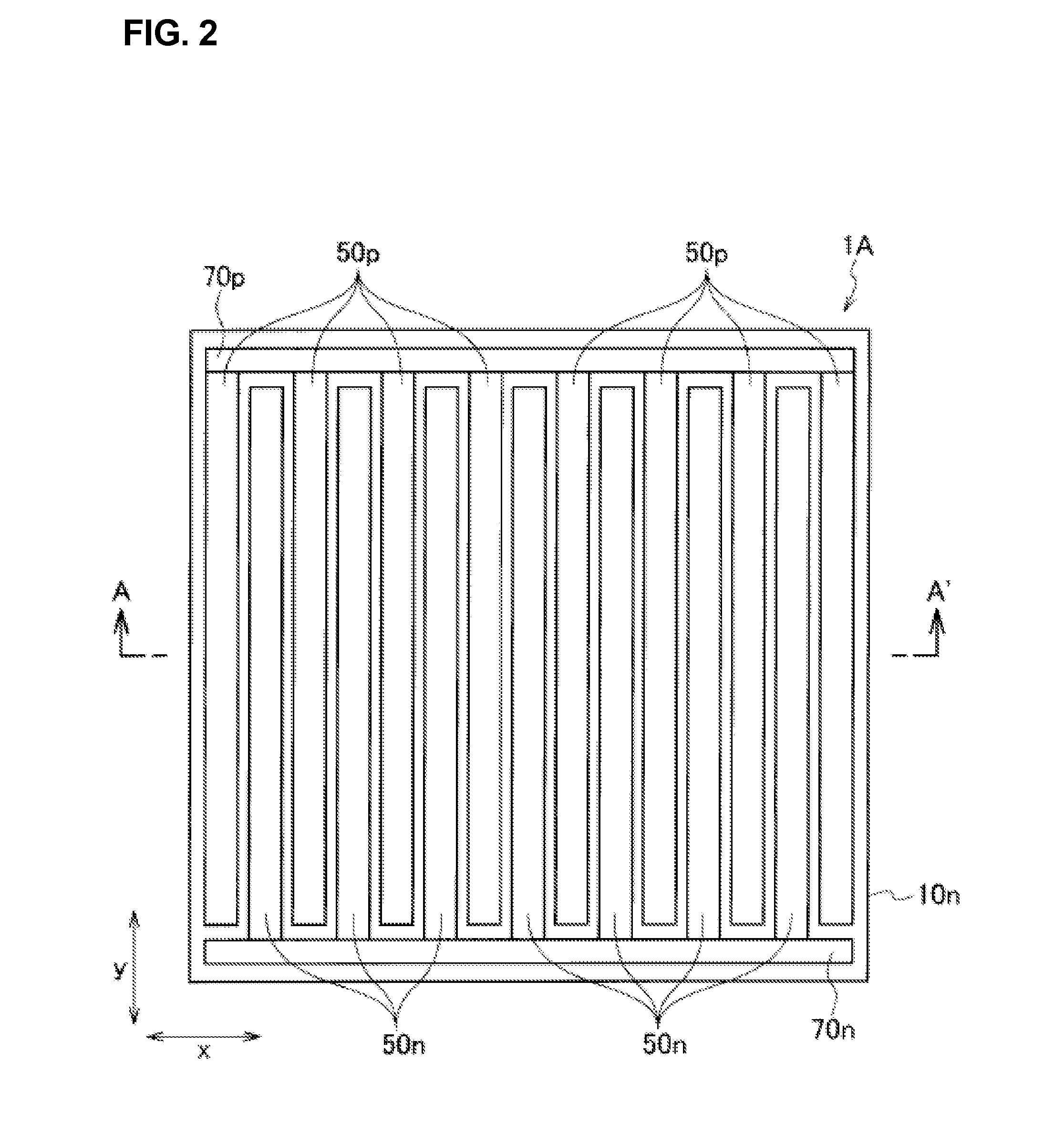Solar cell and method for manufacturing solar cell
a solar cell and solar cell technology, applied in the field of solar cell and method for manufacturing solar cells, can solve problems such as the risk of reducing conversion efficiency, and achieve the effect of improving conversion efficiency and reducing the recombination of minority carriers
- Summary
- Abstract
- Description
- Claims
- Application Information
AI Technical Summary
Benefits of technology
Problems solved by technology
Method used
Image
Examples
Embodiment Construction
[0034]An example of solar cell 1 according to an embodiment of the invention is described with reference to the drawings. In the drawings described below, the same or similar parts are denoted by the same or similar reference numerals. Note that the drawings are schematic and proportions of dimensions and the like are different from actual ones. Accordingly, specific dimensions and the like should be determined in consideration of the descriptions below. Moreover, parts where relations and proportions of the dimensions are different among the drawings are included as a matter of course.
(1) Overall Configuration of Solar Cell 1A
[0035]An overall configuration of solar cell 1A according to the embodiment of the invention is described with reference to FIGS. 2 and 3. FIG. 2 is a plan view of solar cell 1A according to the embodiment of the invention which is viewed from a rear surface 12 side. FIG. 3 is a cross-sectional view taken along the line A-A′ in FIG. 2.
[0036]As shown in FIGS. 2...
PUM
 Login to View More
Login to View More Abstract
Description
Claims
Application Information
 Login to View More
Login to View More - R&D
- Intellectual Property
- Life Sciences
- Materials
- Tech Scout
- Unparalleled Data Quality
- Higher Quality Content
- 60% Fewer Hallucinations
Browse by: Latest US Patents, China's latest patents, Technical Efficacy Thesaurus, Application Domain, Technology Topic, Popular Technical Reports.
© 2025 PatSnap. All rights reserved.Legal|Privacy policy|Modern Slavery Act Transparency Statement|Sitemap|About US| Contact US: help@patsnap.com



